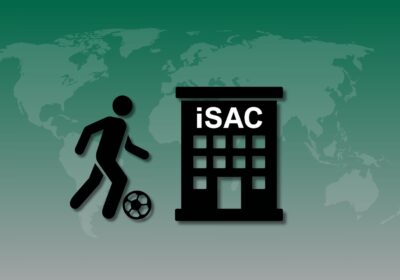Laksa refuses to be defined by age; instead it drives her.

Freshman Kitija Laksa (33) — the youngest player on the women’s basketball team — is second in scoring with 47 points this season. ORACLE PHOTO/ADAM MATHIEU
At 19 years old, Kitija Laksa is the youngest player on the USF women’s basketball team.
But this is nothing new for the Latvian native, as she said she has always learned from older players, dating back to her childhood.
The freshman forward said she doesn’t recall the first time she dribbled a basketball, but she does remember playing summer ball in the backyard with her brother Martins, six years her senior.
“I look at him as my role model because he’s a really good shooter, and he’s athletic,” Laksa said. “Of course he’s older, but there’s a lot of stuff that I can learn from him.”
Martins plays professionally for the Latvian national team, just like their father had. Now, their parents, Janis and Elita, coach boy’s basketball.
“Basketball has always been in our family,” Laksa said. “But I’ve never had the pressure to play or start practicing. I always went to the training camps with them. I had the interest.”
She said that interest has propelled her to develop her game.
Eventually, the 6-foot forward earned a spot on the Latvian Senior National Team as the youngest player on the roster.
“Definitely, it’s different … playing (at) my age because they’re more experienced, so that means I have to pick everything up,” Laksa said. “I’m the one who needs to learn more, to do more, to maybe bring a bottle of water to someone, to maybe pick up all the balls after a practice.
“They kind of used me, but at the same time, we had each other, we had the respect.”
She had just turned 17 when she played in France. That’s where USF coach Jose Fernandez first saw her.
Fernandez travels to Europe every July to scout the talent during the championship games, and Laksa caught his attention with her sharp shooting and demeanor.
“When we were recruiting her, I was really excited because she was probably the best prospect in Europe,” Fernandez said. “She’s got a lot of experience, playing for her senior national team.”
The national team garnered large crowds, but the five-star prospect was familiar with much smaller turnouts.
Sometimes only 20 people would populate the stands, despite her team’s success.
“We were the top team in the country,” Laksa said. “We beat everyone by 20, 30 (points). There were really only like two or three games per season that were really good where we could play alike.”
This season, Laksa will face consistently tougher competition with the No. 24 Bulls. The team’s hope is to advance further in the NCAA Tournament after losing to Louisville in the second round in March.
“I think she’s very motivated,” Fernandez said. “I think she wants to be great, and I think the reason why she came to the U.S. was to be challenged and to play against the best players in the world.”
Through five games, Laksa leads the Bulls with nine 3-pointers and is third in scoring, with 47 points.
“She doesn’t have to set her feet,” teammate Courtney Williams said. “When she catches, she’s letting go. (Put a) defender right there, and she’s going to let it fly.
“She’s smooth. She’s nice.”
Fernandez said he wanted to bring in a shooter, “a kid that could really shoot the ball, create off the bounce. I think she really fits that role.”
Despite her youth, Laksa has already proven to be an instrumental part of the team as its third highest scorer, with 9.4 points per game, behind Williams (28) and Alisia Jenkins (11.2).
“I think she has a really bright future within our program,” Fernandez said.
“I’m glad she’s here, and I think she’s going to be a big part of our success this season and for our program moving forward.”







